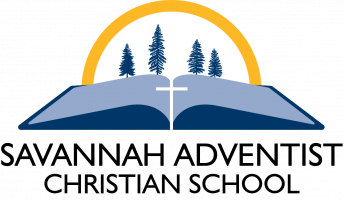Bible: Encounters: Bible curriculum includes lessons that use a combination of Biblical stories, modern-day Christian stories, mission stories, and historical stories. Each lesson has an assortment of activities that go along with the lessons. A core part of the curriculum is learning to serve others according to Bible principles.
7th Grade Math: Big Ideas: Integer Operations, Algebraic Equations, Proportions and Variation, Percentages, Similarity and Transformations, Surface Area of Solids, Volume of Solids, Data Analysis, Probability, Linear Equations and Functions, Angles and Similarity, Radicals and the Pythagorean Theorem, Exponents and Scientific Notation
8th Grade Math: Big Ideas: Algebraic Equations, Graphing and Writing Linear Equations and Linear Systems, Functions, Angles and Similarity, Square Roots and the Pythagorean Theorem, Data Analysis and Displays, Linear Inequalities, Exponents and Scientific Notation
Social Studies: We alternate social studies content each year, one year focusing on U.S. History (Reconstruction to present), and the other year focusing on World History (modern civilizations). Projects, field trips, art activities, and study skills are incorporated.
Science: ByDesign Science: Investigation and inquiry based methods to study the scientific world. Each year we study a unit each of: Life Science, Health Science, Earth Science, and Physical Science. Engineering, Technology and Science Applications are embedded in each unit.
P.E.: Fundamental skills, rules, teamwork and Christian sportsmanship are taught using basketball, floor hockey, flag football, softball, volleyball, and soccer.
Literacy: Many literature and non-fiction units are used to increase student appreciation of literature and to improve their use of the elements of writing. Spelling, grammar, vocabulary, speaking, and listening are also part of the literacy instruction.
Music: Students in grades 7 & 8 form the SACS Handbell Ensemble. They build on skills learned in Tone Chime Choir (5th & 6th grade), work together, and perform publicly.
Skills: Students will build their note-reading skills and count more complex rhythms, as well as learning the techniques and skills required to make the handbell instruments produce musical sound. Students are expected to learn the musical notation used in Level 1 & 2 handbell music.
Participation/behavior: Rehearsals are class-time activities designed to prepare student musicians to perform as a group. Attendance at rehearsals and self-disciplined focus during class are expected.
Performances: The individuals in the class will learn to become a team who—together—produce harmonious music. Performances are an important part of the grade in this class; some performances are off-campus/school day events, and others are weekend commitments.
